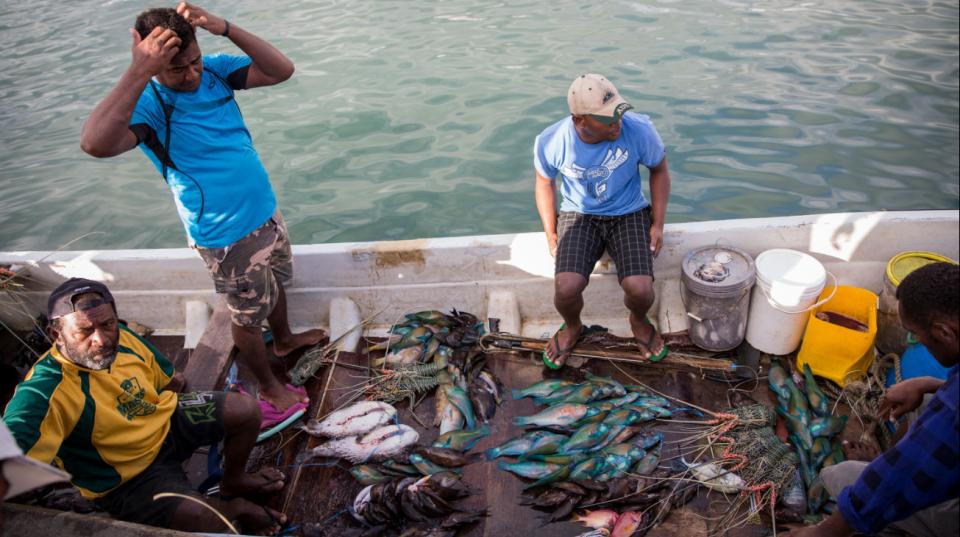Overview
This project aimed to identify Pacific ‘hot spots’ where climate change and post-COVID-19 food impacts will be most severe and where communities may be most ready to consider how they want to and can transform.
The project also explored novel integrated coastal production systems that could close the food gap while also being suitable for the degree of climate change coming in the near future.
Food and nutrition security in many coastal areas of the Pacific are under increasing pressure due to interactions between climate change population growth and shocks such as the COVID-19 pandemic. There is a ‘food gap’ developing whereby demand for local food is exceeding supply, and imported food supplies contribute to non-communicable diseases and are exposed to global shocks. This is particularly true for fisheries-based food and livelihood systems as climate impacts are expected to be severe enough that reef fisheries and potentially nearshore fisheries may experience significant collapse within the next 15 years. Hence there is a necessity to transform coastal food production via integrated technological and social innovations that are community-led, supported by decision-making processes that build capacity and momentum for proactive change.
Project outcomes
- Identified ‘hot spot’ coastal food systems in the Pacific where transformation is necessary and most feasible.
- Scoped potential combinations of integrated food production technologies and approaches and their ability to close the food and nutrition gap sustainably.
- Identified potential communities to work with where social and technological transformation is most needed and feasible, including engaging with relevant in-country stakeholders.
- Established effective partnerships between the project partners and other key longer-term collaborators that can establish a platform for future implementation of the SRA’s recommendations.




